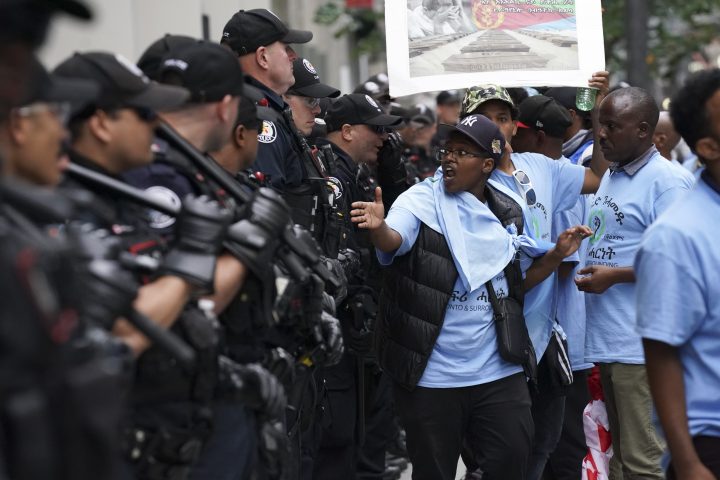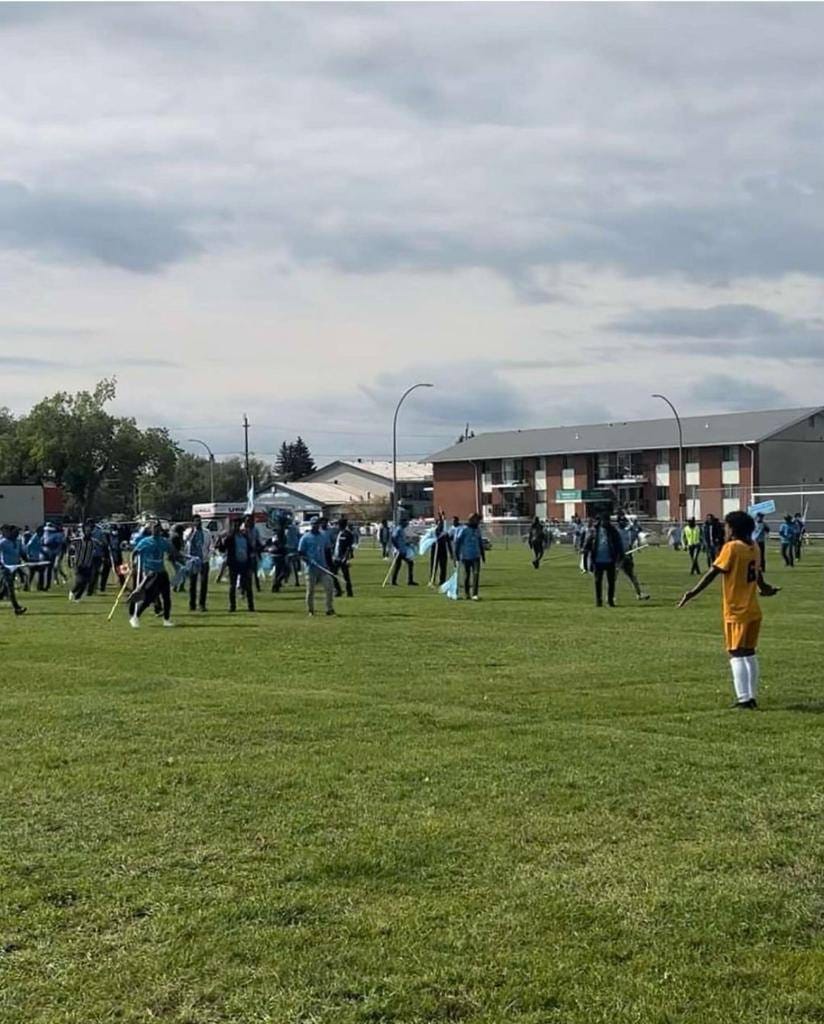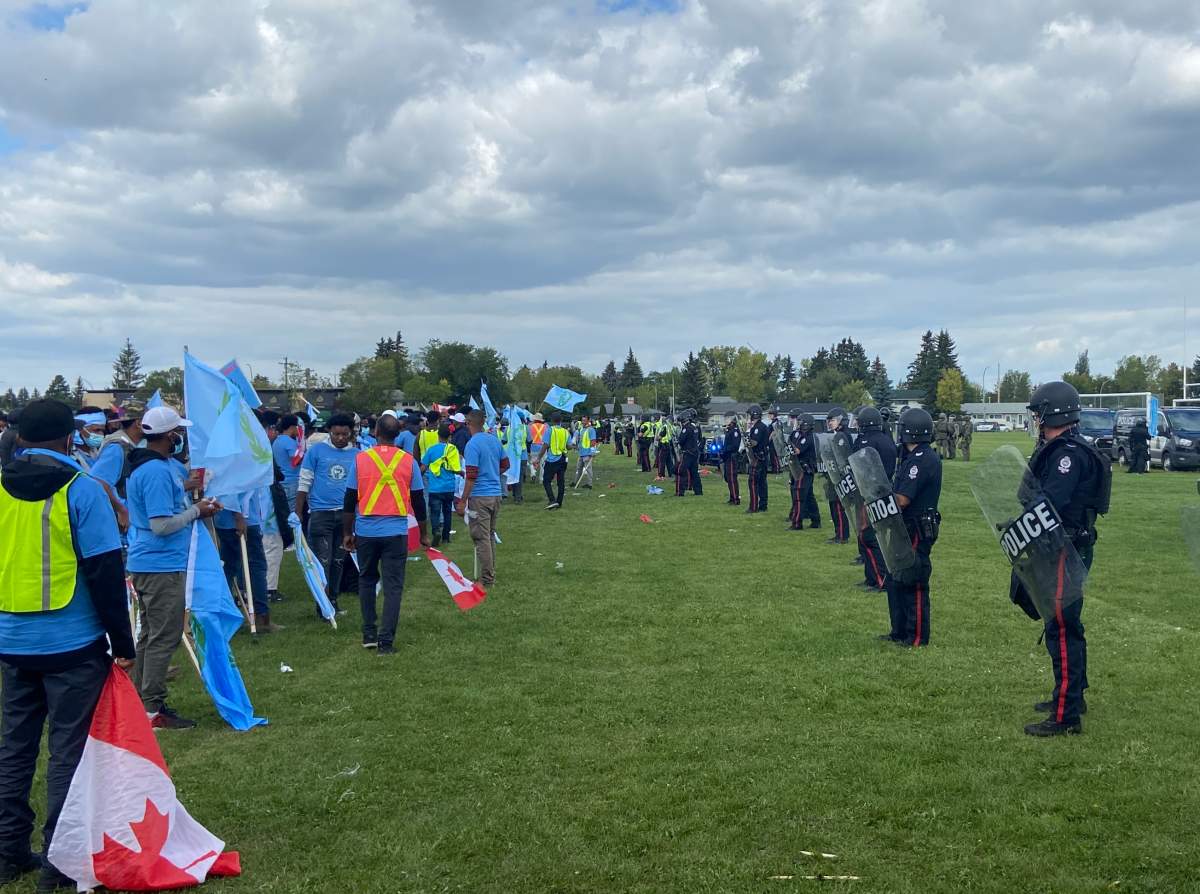Tensions are boiling over in Canada’s Eritrean community after festivals turned violent this month.

Chaos erupted at the Festival Eritrea between attendees and protesters at two locations in Toronto over the August long weekend.
Several gatherings in Edmonton related to an annual festival also ended in violence, with multiple people suffering injuries.
This comes after similar incidents involving the Eritrean communities in the United States, Sweden, and Germany.
There is growing anger and opposition among some sections of the Eritrean diaspora over the government of Eritrea and the situation in the northeast African country.
Demonstrators oppose Eritrea’s government and are against the staging of these festivals in Canada because they claim they are used to collect money for the “repressive regime” and promote propaganda.
Here is what to know about the recent tensions and why anger is running high in Canada.
What has happened in Canada?
On Aug. 5, an Eritrean festival held annually at Toronto’s Earlscourt Park was disrupted by demonstrators, many of them new arrivals and young refugees who have fled the regime and come to Canada.
Mussa Shehai, who was among the protesters in blue shirts, said they went to the festival with the intention of staging a “peaceful” demonstration, but soon after they arrived “hell broke loose.”
“There was a lot of security and they never told us to stop,” the 62-year-old Eritrean-Canadian accountant told Global News.

Shehai said when they arrived near the stage, they began chanting to challenge the speakers at the festival and “their repressive regime.”
“As we were lining up and chanting… stones start flying from the tents, from inside the tents, and that’s where hell broke loose,” he said. “And then the fight broke out from the left, right and centre. I was there in the same area and I could not watch. … it was chaotic.
Alem Hagos, another protester, said it was “almost like a war zone.”
Violence at the park between the two sides sent nine people to hospital, with one man sustaining serious injuries when he was stabbed, according to the Toronto Police Service.

Get daily National news
The city of Toronto ended up revoking the permit of the festival that has taken place there for years.
The following day tensions also spilled over at the Sheraton Hotel in downtown Toronto, where the festival organizers were holding an event.
Three people were arrested over the hotel protest and later released unconditionally, police said.
Meanwhile in Edmonton, on Aug. 19, violence erupted between Eritrean groups at a cultural gathering, soccer tournament and musical event.
Multiple people were injured as protesters of the Eritrean festival confronted participants. About 100 officers were called in to separate the two sides. And in an extremely rare move, Edmonton police read the Riot Act that was last used in 1999.
Three demonstrators were detained and later released, police said.
Kalab Arefaine, who was attending the Canada World Peace Soccer Tournament at Rosslyn Park in north Edmonton on Saturday with his friends and family, was among the injured.
Speaking to Global News on Wednesday, Arefaine said the demonstrators came in “like a flood” and attacked the attendees.
He said he suffered a blow to his head when he tried to intervene and help an old man being hit with sticks by the protesters.
“This is ridiculous. For me, I’ve never seen in my life (attacks on) people with different weapons.”
Like Toronto, Edmonton authorities also ended up withdrawing the festival’s permit due to safety concerns.
Why are Eritreans protesting now?
Shehai said protests have been held at these festivals in the past but the numbers are now growing thanks to social media.
“Previously, people opposed it — but not to this volume — because this new generation who arrived from Eritrea … were the first direct victims of the regime … when they gather, the numbers exponentially grew and the old generation followed along like me,” he said.
Eritrea won independence from Ethiopia three decades ago.
Since then, the small Horn of Africa nation has been led by President Isaias Afwerki, who has never held an election. Human Rights Watch describes the country as a “one-man dictatorship” with “no legislature, no independent civil society organizations or media outlets, and no independent judiciary.”
More than half a million residents have fled the country in order to avoid conditions such as forced military conscription since the end of 2021.
Zedingle Ghebremusse, past president of the Eritrean Community Association of Edmonton, said the festivals are staged under the guise of culture and sport.
“They collect money and of course divide… communities and diaspora by creating tensions among who is supporting the regime and … non-supporters,” he told Global News.

Shehai said the main reason for the Toronto demonstration was to stop the alleged funding and bring about change in Eritrea.
Hagos, who was also protesting in Toronto, said their aim was to be a “voice for the voiceless” for loved ones living under what she said were “nightmare” conditions in Eritrea.
She herself fled the country because of the war between Eritrea and Ethiopia.
“For the past 30 years I don’t even know what to describe — it’s been hell to our family,” she told Global News.
Human rights groups have described the Eritrean government as one of the world’s most repressive with allegations of forced labour and conscription, as well as strict restrictions on freedom of expression, opinion, and faith.
What do the festival organizers say?
The Coalition of Eritrean Canadian Communities and Organizations (CECCO), who co-organized the festivals, said the events have no political agenda tied to them and that peaceful people were attacked while celebrating.
Lambros Kiriakakos, CECCO chairman, told Global News the festivals were not government fundraisers, rather they were opportunities to celebrate Eritrean culture and community.
“Beyond any politics allegations, this is a family-oriented event that has been happening for years,” he said. “The festival is a Canadian event. It’s an event that happens here. It’s controlled by the laws of Canada.”
Kiriakakos said he was “very concerned” about the wrong image this violence is portraying of the Eritrean community, but said the festival will continue to run.
“There’s a new generation that was raised through these festivals and is committed to maintain a strong tie with homeland, with the wider community and with the pride of an African Eritrean identity.”
— with files from Global News Isaac Callan, Karen Bartko and The Canadian Press











Comments
Want to discuss? Please read our Commenting Policy first.